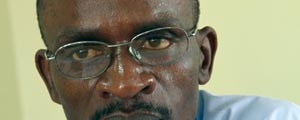
Zimbabwean political leaders have many pressing matters to address in a limited time.
View Point with Wisdom Mdzungairi
Already, the country is in “election mode” having ahead two electoral processes — the constitutional referendum and harmonised elections.
Finance minister Tendai Biti is cracking his head trying to look for ways to raise $250 million for the elections. Although the United Nations Development Programme is said to be mobilising finances to complement Biti’s meagre $25 million, no other country has pledged financial support so far.
Regional leaders, in particular Botswana President Ian Khama, who has in recent years emerged as President Robert Mugabe’s outspoken critics, says he doubts the Head of State and Zanu PF will not stand in the way of free and fair elections. His argument is that “all people who were involved in the brutality and intimidation that took place back in 2008 are still active”.
Well, what we know is that the President and Prime Minister Morgan Tsvangirai have repeatedly urged peace ahead of the two electoral processes –a good indication for those that would want to voluntarily participate as voters.
It is within their right to educate their supporters to vote for them in peace just as it is a right for those who do not want to vote for any of them — neutrals to be precise (for they are in their thousands in this country who believe none of the political leaders globally can change this system of things for the better).
Therefore, it is hoped that no political party or leader would try to coerce citizens to participate in a process that they believe is doomed. Elections are the indispensable root of democracy for those that believe in them. For this reason, conducting elections with integrity is critically important.
- Chamisa under fire over US$120K donation
- Mavhunga puts DeMbare into Chibuku quarterfinals
- Pension funds bet on Cabora Bassa oilfields
- Councils defy govt fire tender directive
Keep Reading
Elections matter for empowering women, fighting corruption, service delivery, improving governance and perhaps reducing civil wars. When conducted with integrity, they are presumably at the heart of democracy’s ability to resolve conflict peacefully.
Last month, I happened to be in a meeting that was addressed by Festus Mogae, former president of Botswana and a member of the Global Commission on Elections, Democracy and Security, at which he said: “Fraudulent elections are linked with violence and political instability.”
The Commission is composed of distinguished former leaders and eminent personalities.
Therefore, for democracy to play its part in promoting non-violent resolution of social and political conflict, the integrity of elections is crucial.
Only when elections are credible can they legitimise governments and safeguard the right of citizens to exercise their political rights. At its core, Mogae told African Foreign Affairs ministers that electoral integrity is a political problem, hence power and the competition for power, must be regulated.
It is not enough for governments to create institutions. Politicians must respect and safeguard the independence and professionalism of election officials, judges and courts.
Electoral accountability, which is the ability to hold incumbents responsible for their governance performance through elections, depends on polls with integrity, and is associated with reducing government corruption.
Given the country’s position, elections with integrity have never been more important than they are today! We are living through one of the worst downturns in memory and inequality is on the rise. There are five major challenges to enhance elections with integrity identified by the Commission as follows:
• Building the rule of law, thereby ensuring that government is accountable; citizens are equal at law; lawmaking and enforcing are not arbitrary and laws respect human rights.
• Creating professional, competent electoral management bodies with full independence of action to administer elections that are transparent and merit public confidence (what with the abrupt resignation of Zimbabwe Electoral Commission chair Justice Simpson Mutambanengwe).
• Creating institutions and norms of multi-party competition and division of power that bolster democracy as a mutual security system among political contenders. For elections to provide this mutual security, countries must ensure elections are a non-violent means of political competition, and ensure elections are not a winner-takes-all political competition in which it is better to revert to violent struggle than accept an electoral loss.
• Removing legal, administrative, political, economic and social barriers to universal and equal political participation. In many countries including Zimbabwe, aliens, minorities, women, displaced persons and people with disabilities face barriers to participation that significantly reduce their representation and political influence. • Regulating uncontrolled, undisclosed and opaque political finance. Poorly regulated political finance poses a grave threat to elections with integrity through blatant vote-buying and bribery; explosive growth in campaign expenditure that undermines citizens’ trust in the electoral process; and use of campaign finance for political influence by organised crime groups. While Khama or any other foreign leader does not decide what happens in Zimbabwe, citizens are of the view that elections with integrity are primarily the responsibility of national actors, but that the international community also has a role to play. Indeed, Africa, in particular Zimbabwe, does not need “strongmen”, but strong institutions.
[email protected]/twitter.com/wisdomdzungairi











